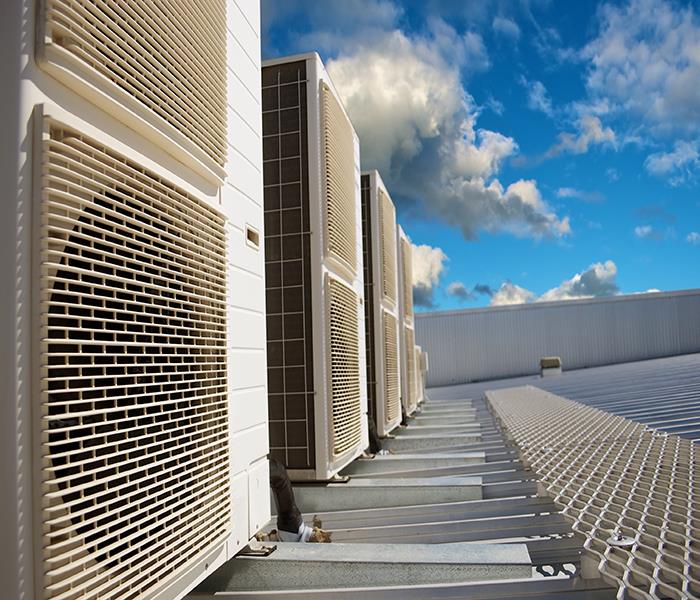HVAC Systems and Mold in Asheville
6/11/2015 (Permalink)
HVAC Systems and Mold
HVAC systems within drain pans and piping often contain mold. Maintenance personnel need to be aware of the consequences of an HVAC system that is not well-maintained and can spread mold. This way, they will be able to work on a strategy to prevent Asheville mold damage.
Understanding the Issue
Asheville mold is seen as a problem when it is detectable in an indoor setting. It is typically found in certain circumstances that involve the optimal combination of air, temperature, and moisture. The most common food sources for mold are drywall paper, cardboard, carpets, and other household surfaces.
Appropriate Procedures
One of the most effective ways to do away with the source of moisture is to control relative humidity. An informed manager can be helpful here; some think that they will be able to eliminate spores using cleaners such as biocides and bleach. However, these agents can only kill or disguise some of the mold, leaving behind non-viable spores that can continue to grow and spread in the HVAC system. As such, proactivity is important with an HVAC management plan, and in most cases, it is necessary to hire a professional.
A Lack of Guidance
There are no federal regulations, so there are many state agencies, as well as groups and associations, that have published sets of recommendations for Asheville mold remediation indoors, as well as guidelines for improving the health of people who have been exposed to mold spores. Several of these speak of the proper guidelines in terms of designing, installing, and maintaining HVAC systems. However, federal regulation is crucial; a comprehensive remediation plan would be helpful to everyone. An official policy would benefit businesses as well as individuals; it would protect the financial and medical interests of everyone who is involved.
New Regulations
HVAC systems are known to have a significant effect on condensation; for this reason, it is very important that new regulations be put into place to make for consistent standards within the HVAC industry. These regulations should entail mechanisms for control of HVAC condensation in buildings and between them, as well as the development of a maintenance regime for drain pans and pipes within buildings.
Every HVAC manager and technician should be taught these new regulations and be required to abide by them, so that the safety of the environment within these buildings is protected. This should be made a priority, for the sake of public health.
Commercial Mold Remediation Presents Unique Challenges
Mold can spread quickly through a property if left untreated. SERVPRO of Asheville East can respond quickly, working to first contain the infestation to help prevent its spread to other parts of the building. Next, we will begin the remediation process, working safely and effectively to manage the situation. We have the training, experience, and equipment to contain the mold infestation and remediate it to preloss condition. Learn more about SERVPRO of Asheville East training and certifications.
- Applied Microbial Remediation Specialist
- Water Damage Restoration Technician
- Applied Structural Drying Technician
- Odor Control Technician
- Upholstery and Fabric Cleaning Technician






 24/7 Emergency Service
24/7 Emergency Service
